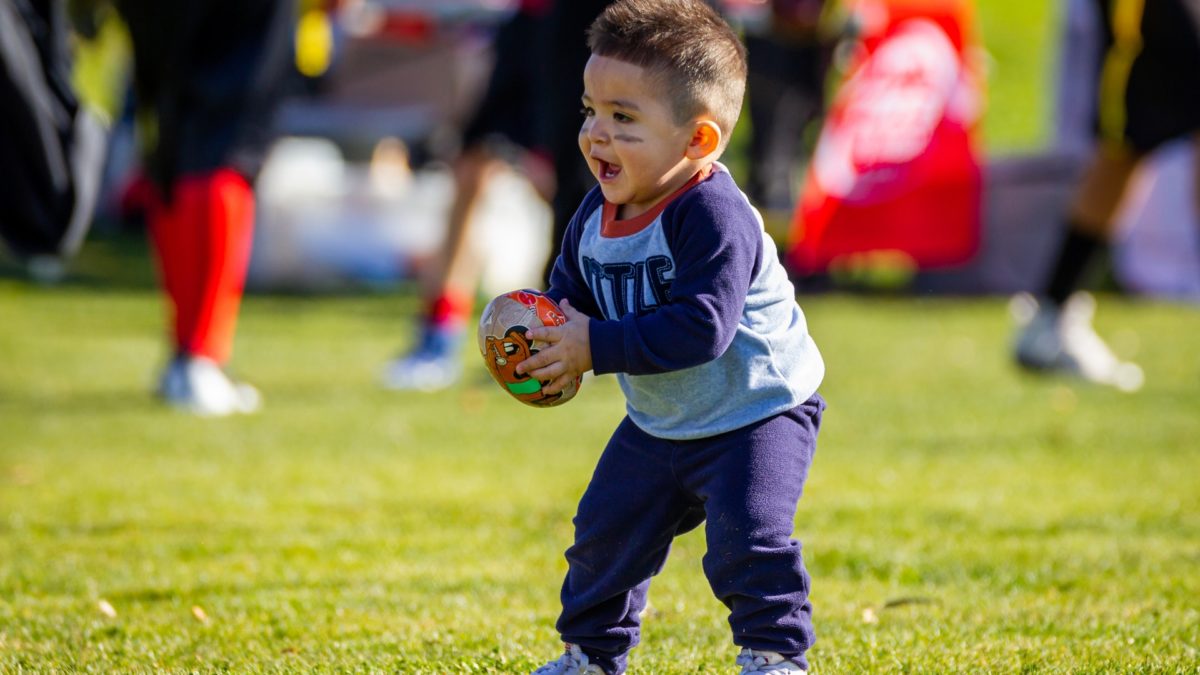As parents navigating the ups and downs of the sporting world, what are some of the opportunities to grasp, priorities to hold onto and dangers to avoid?
Parents can play sport with their children, watch sport with their children and watch their children play sport. They may even find themselves coaching or managing their children’s sporting teams. Time spent together in these ways can be highly bonding and very enjoyable, providing great teaching opportunities and creating special memories for all involved.
Parents also face key decisions regarding their children’s participation in sport, and here are five things you shouldn’t do when you have kids playing sports.
And at the end of this article, psychologist Collett Smart shares ways parents can help kids feel better when they or their team loses.
1. Use our kids to fulfil our dreams
We need our children to know that we love them regardless of how they perform. One of the great dangers in sport is for parents to try to live out their own ambitions through their children.
It is good and natural to feel pleasure as we watch our children compete—giving it a go, trying hard, working together with their teammates, displaying good sportsmanship, and perhaps even doing well. But it is not good to use our children to fulfil our dreams. The more we try to live out our dreams through our children, the more likely it is that we’ll (perhaps inadvertently) apply pressure on them to perform, making them feel as though they can only earn our approval if their performances live up to our expectations.
Leave your misplaced ambition behind, and love and support your children unconditionally as they make their own way in the world of sport.
2. Fail to draw life lessons
Sport can give parents regular extended time with their children. Besides being very enjoyable, this can also give us the opportunity to speak to them, not only about sport, but also about life.
Driving to and from games is a good time for this. And when our children are older and no longer live with us, sport may still provide a way for us to speak to them about important matters. When hockey international Susie Harris was living away from home or touring, her parents would often write her notes full of spiritual encouragement and life advice.
When our children are younger, sport can also give parents the opportunity to observe their offspring “doing life” outside of the home. We don’t usually get to see our kids at school, but we can observe them in action at sport. This provides the opportunity to affirm our kids when we see them behaving well, and to lovingly correct them when we see them going off course in some way.
3. Forget to make friends
An involvement with our children’s sport not only gives us the opportunity to spend time with our kids, it also allows us to meet, befriend, enjoy and hopefully have a positive influence on other people. It is said that “it takes a village to raise a child”, and we can be part of that “village” for other children. The sideline is also a great place to meet and befriend parents. The regular nature of much sport certainly allows for the development of these relationships.
4. Make our kids feel they’re not good enough
One important truth to convey to our children is that God loves them regardless of how they perform in their sport. It is very important that we help them to appreciate this, particularly given that we live in highly performance-based cultures.
Former Oxford University rugby union player and now Church of England minister Rico Tice reflects on his time at boarding school. He recalls that the implicit message of the school was, in his words, “You’re not good enough. You have to prove yourself.”
“This created people who were unrelentingly achievement-driven”, he says. Rico’s experience would be far from unique. We do not have to perform to receive God’s attention or earn His love. He has shown unconditional love to us in Christ. Our children need to know that God loves them unconditionally, and that their identity is found in Christ, not in their sporting success.
5. Teach our children to win at all costs
We should train our children to be kind and love others by, for example, doing their best, being a good team member, and showing good sportsmanship on and off the field.
It is also good to consider the sort of example we are setting. As in all areas of life, our encouragement will fall on deaf ears if we aren’t providing a consistent model in our own behaviour. For example, what are we like on the sideline? A work colleague once described to me the words he heard a father shout to his son’s football team as they ran onto the field: “Come on, Blahsville [an invented name]! Crush their spirits!”
Crush their spirits?! It was an under-10s game! Is that the sort of attitude we want to model?
A particular danger for Christian parents is to accidentally convey to our kids that sport is more important than God. I remember a minister reflecting on whether his children saw him getting more excited about his favourite football team winning, or about someone becoming a Christian. It’s a good question. Similarly, what do our children think is more important to us—having regular spiritual time or regular sporting involvement? The words of Jesus in Mark 8:36 are relevant here: “What good is it for someone to gain the whole world, yet forfeit their soul?”
My most heartfelt prayer for my children is that they grow up to be keen followers of Jesus, not that they be given every sporting opportunity available to them.
How do we encourage after they or their team lost? Psychologist Collett Smart has some fantastic suggestions.

This is an edited extract from The Good Sporting Life (Matthias Media, 2020).
How helpful was this article?
Click on a star to rate it!
5 / 5. 2
Be the first to rate this post!
Stephen Liggins
Related posts
Subscribe
Receive personalised articles from experts and wellness inspiration weekly!


